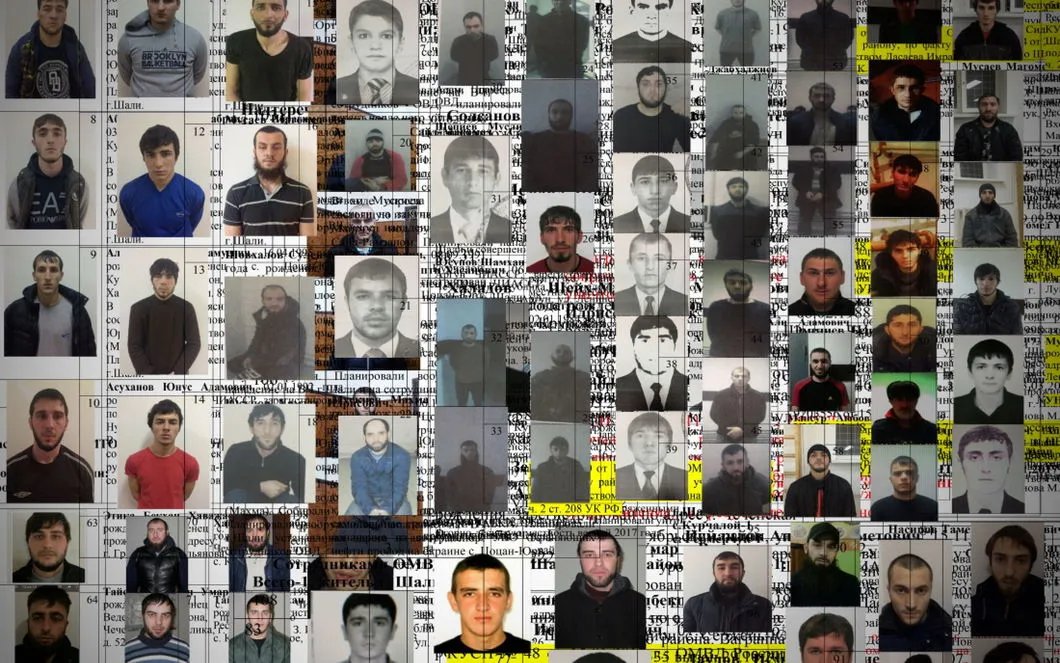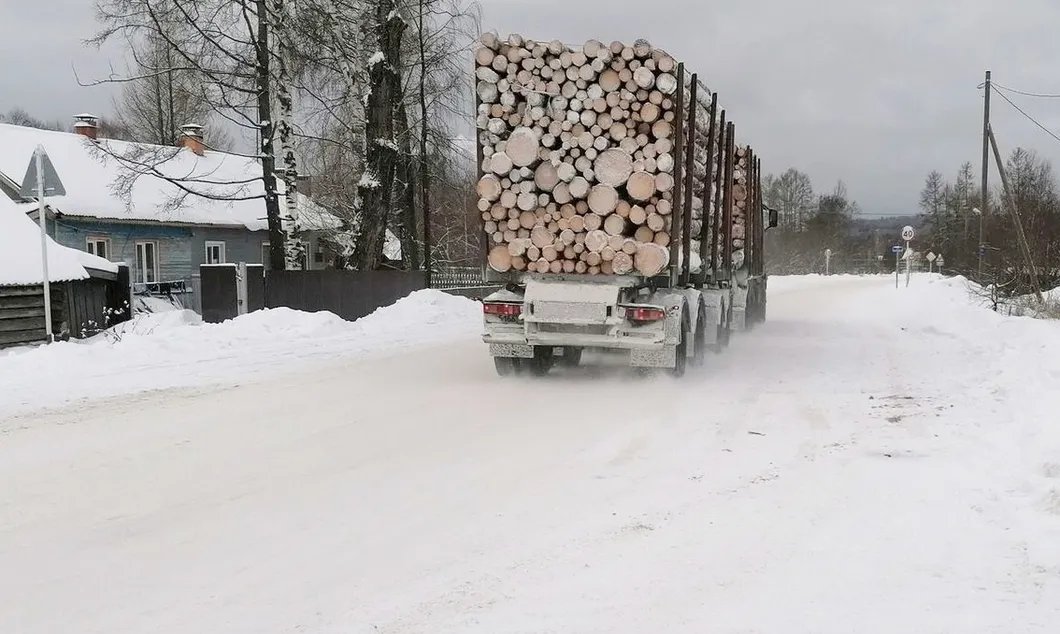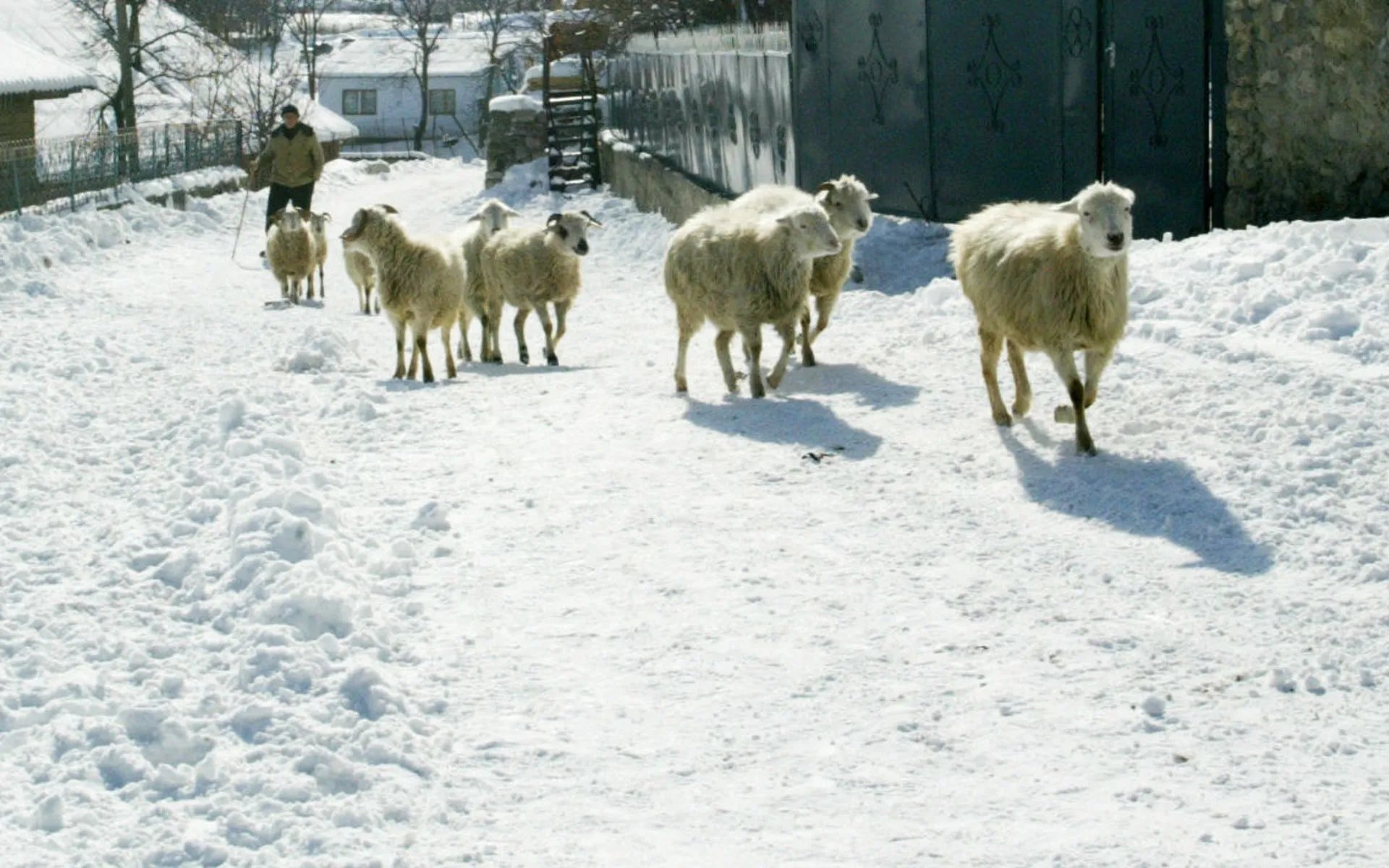Here what’s in the store for you this week:
- For the last several years, we’ve been meticulously documenting how Chechnya’s security forces abduct and execute people. This week we share new batch of evidence;
- Russian parliament keeps coming up with new and new ideas to suppress dissenting voices;
- Plus, another episode in the standoff of Russian indigenous people vs unchecked pillage of their ancestral lands.
**Want to get the full story? Click the links below for full-length articles in Russian. **
Mass Murder in Chechnya, Exposed
We've been collecting and fact-checking evidence that confirms Chechen authorities kidnapped at least 109 people over the last several years. They also subsequently executed many of them. Our award-winning investigative reporter Elena Mislashina spent years establishing and verifying the details surrounding these extrajudicial killings. This week we publish the first part of the investigation.
EXECUTED WITH NO DUE PROCESS. Russian authorities have registered all these deaths as cases of 'terrorists' killed by the security forces. 'Anti-terrorism' measures are often abused by the autocratic elites running this tiny region in Southern Russia — to crack down on critics or minorities. In reality, many of the victims were simply murdered in custody with no due process. In one of the harrowing examples from January 2017, local authorities executed 27 Chechens in one night: two were shot, and the rest were strangled. We reported the incident before, but this is the first time we managed to verify the circumstances of that mass murder.
SOME LGBTQ+ VICTIMS ON THE LIST, TOO. Primarily because most of the investigated murders happened around the same time as well-documented gay pogroms in Chechnya. Authorities tortured some of the kidnapped victims so severely that they died from the injuries instead of being executed. It took months to verify the murder circumstances. We scrupulously discovered the fate of almost each of them, including the date, time, and grounds for their detention, which eventually ended in their extrajudicial execution.

WE ALSO PUBLISH THE FIRST WITNESS TESTIMONY FROM THE "OTHER SIDE": AN INTERVIEW WITH A MEMBER OF THE CHECHEN SECURITY FORCES INVOLVED IN THE CRIMES. We helped to evacuate this person and his family from the country. While the witness remained in Russia, we were unable to publish his testimony for security reasons. But over the years, we have thoroughly reviewed his history and were able to confirm what he said. The Investigative Committee of Russia has never granted a single petition for state protection, even for the direct victims of Chechen security officials. It would be very naive to hope that the Russian state will protect a witness who is 'a traitor' from the state's point of view.
WE TEAMED UP WITH RUSSIAN HUMAN RIGHTS WATCHDOGS TO CONVINCE THE WITNESSES TO TESTIFY. Together with the human rights organizations' Memorial' and 'Pravovaya Initsiativa' (both are now placed on the state-run list of so-called 'foreign agents'), leading queer rights watchdog 'Russian LGBT Network', a public initiative 'Committee Against Torture' and a brilliant team of human rights lawyers, we managed to convince the residents of Chechnya who witnessed illegal detentions, torture and extrajudicial executions openly testify about this.
NOT TERRORISTS AFTER ALL. Our reporting revealed that the allegations that the victims belonged to terrorist groups like ISIS, or criminal gangs, were mostly bogus. Chechen security forces forced the detainees to participate in videos in which they pledged allegiance to the Islamic State. These videos were staged to justify the detainees' execution.
A USELESS GOVERNMENT INVESTIGATION. Earlier, we shared the murder list with the Investigative Committee of Russia, a federal investigative agency. In the end, it agreed to look into the murder of just 31 out of 107 victims we identified and confirmed the deaths of only four of the people from the list. Officials also claimed that they had found two of the people from the list alive and had interviewed them. We investigated that, too. Turned out, these 'interviews' were staged by the Chechen authorities in a bizarre attempt to 'resurrect' the victims and hide extrajudicial murders.
BACKSTORY. Chechnya's autocratic ruler Ramzan Kadyrov operates under Putin's direct patronage and has essentially been given free rein over the oil-rich province. Region's massive corruption fuels monstrous income inequality and the worst human rights violations in Russia. Moreover, those who escape the region and seek asylum abroad are increasingly under threat. The Chechen authorities are known for ordering assassinations in Europe and using Interpol arrest warrants to go after dissidents around the world. Disappearances are common in Chechnya, where suspected dissidents, sexual minorities, and even members of the political elite who have fallen out of favor have been illegally detained, tortured, and executed. Many of our journalists were attacked in connection with the Chechnya coverage, and some got murdered, including Anna Politkovskaya. Kadyrov had previously made explicit threats against our investigative journalist Elena Milashina and us, following the publication of her expose on the region's repressive COVID-19 lockdown measures.
**Read our deep dive into the extrajudicial killings in Chechnya here. **
More Oppression in Russia, Explained
The Russian parliament feels extra creative: State Duma had a busy week passing a series of bills to further limit the public display of criticism of the Kremlin. This week our Natalia Glukhova and Maria Efimova give you a quick brief on new oppressive laws.
FIRST, INCREASING PENALTIES FOR PROTESTERS. One of the bills allows for harsher penalties for people organizing protests. It includes an increase in the amount of money that officials can fine protesters for alleged violations. The state has used fines as one of its main repressive instruments in recent years. That policy is a creative way to keep people in the country with rising poverty levels from exercising their right to protest. It's also no coincidence that this bill passed in the wake of widespread protests over opposition leader Alexei Navalny's arrest.
"The tightening of Russian legislation on public events always takes place before elections or following mass protests," political analyst Ekaterina Schulmann notes.
SECOND, MORE' INTERNET SOVEREIGNTY'. The second bill could force Russia's telecommunications companies to pay multi-million fines for violating Russia's 'sovereign internet law.' Russia has been toying with the idea of establishing a local internet system disconnected from the global web — for better government control and surveillance. Last year, the government adopted a legal framework for the internet's centralized state management. The new bill is an added enforcement mechanism. "According to article 31 of the Constitution, people have the right to express their opinions on the socio-political situation in the country," says lawyer Daniel Berman. "But the State demonstrates an absolute lack of tolerance of people's desire for a peaceful dissent."
Поддержите
нашу работу!
Нажимая кнопку «Стать соучастником»,
я принимаю условия и подтверждаю свое гражданство РФ
Если у вас есть вопросы, пишите [email protected] или звоните:
+7 (929) 612-03-68
THIRD, TIGHTENING THE SCREWS ON FREE EXPRESSION. All of this legislation is going to create a severe problem for freedom of expression. Just last week, the government online-blocked an independent news outlet 'Spektr' for publishing reports from the protests. This new law will make it even harder for opinions outside of the status quo to live online in Russia. Another bill passed recently will allow jail sentences of up to 15 years for anyone who promotes 'the use of drugs online effort' — another likely facade for more free speech restrictions.
"Russian parliamentarians see the internet as a tool for progress, which in their minds is not a blessing but an evil that must somehow be contained," explains Galina Arapova, Director of the Center for the Protection of Media Rights. "All information policy in the country aims to control the Internet and suppress freedom of expression online."
**Read Natalia Glukhova and Maria Efimova’s reporting on the new legislation here. **
Karelia’s Vepsians vs. the Loggers
The indigenous population of Karelia, a region far up in northern Russia, says their land has been stolen by loggers cutting down local Taiga, a swampy coniferous forest. Tatiana Britskaya, our correspondent in the Arctic, reports on the Vepsian people’s fight to protect ancestral lands from the state-backed pillaging.
A SUDDEN FOREST LEASE COMES AS A SURPRISE FOR LOCALS. A group of Russian lumberjacks obtained a lease to log 50,000 hectares of land for 49 years. The loggers work for a major wood processing company that plans to use the wood to build furniture. The company will pay a comparatively small fee of $60,000 to local authorities each year for the right to log on the territory of this ancient forest. But the local population didn’t learn about any of this until the trees started to fall down around them. Whole areas of forest are already clear cut.
SACRAL FOREST ‘HIJACKED.’ The Vepsians are a small indigenous group that has lived in the Prionezhsky region from time immemorial. They are a Finno-Ugric people who, since at least the 9th century, have inhabited the territories between local the Ladoga and Onega lakes, as well as areas of present-day Karelia. This indigenous community is outraged that their land is being exploited without their say.

“LOGGING IN THE TERRITORY OF A SMALL INDIGENOUS GROUP REPRESENTS A THREAT TO THE ENVIRONMENT, AS WELL AS TO THE LIFE AND HEALTH OF THE POPULATION. The forest area serves as a barrier against stone dust and noise from quarrying stone near the settlements,” argues Anatoly Klimov, a local environmental activist. “The original environment of the Vepsians is primarily forests and bodies of water. Since ancient times, the indigenous people have been engaged in fishing and gathering mushrooms and berries. This is of great importance for intra-family consumption,” he adds.
INDIGENOUS RIGHTS BLATANTLY VIOLATED. The Vepsians say that the Russian government had no right to lease their land without their permission. That was a violation of both Russian and international law, which requires consultation with indigenous populations before their land can be used for private enterprise. Suddenly, however, the Vepsians were told that their land and ancient forests surrounding it belong to the loggers. Karelia’s Ministry of Nature and Ecology signed an agreement with the wood processing company as far back as 2018.
“We were given away along with the land,” Elena Timbaeva, a native of the region, told Novaya Gazeta.
THE LOGGERS KEEP LOGGING, UNBOTHERED. ‘No approval required,’ says Valeriy Puchkov, the executive director of the company that obtained the lease. He argues that the logging is taking place on federal land that has no relation to the Vepsian indigenous community. Consequently, the company is under no obligation to discuss the matter with the Vepsian people. Puchkov also added that people ‘should just calm down,’ since the company ‘doesn’t plan to cut down every tree.’
BACKSTORY. The Russian government keeps expanding the industrial harvesting of natural resources deep into previously protected nature reserves. All of this development takes place to the detriment of local indigenous communities, which have long had a contentious relationship with the Russian state. For centuries, Moscow has been erasing indigenous culture and denied these populations their rights. There has also been a recent spike in tensions between federal authorities and indigenous communities. Some of these nations mobilize against an over-centralized state, government-backed environmental assaults on their sacral lands, and claim back their autonomy. In Kalmykia, for example, the majority-Buddhist region protested against a Kremlin-appointed Mayor. In Buryatia, locals rallied against a rigged election for weeks. In a case that sent waves across Russia, a Sámi activist sued the government for extortion last year.
**Read our full report on the theft of the Vepsian land here. **
Other Top-Stories Russia Has Been Reading
- ‘THE ABDUCTION OF EUROPA’ CLASH.
One of our most-read stories this week was an essay entitled ‘the Abduction of Europa,’ written by Konstantin Bogomolov, a theatre director and the husband of Russian TV celebrity Ksenia Sobchak. The controversial op-ed has caused quite a stir and sparked widespread debate. The director suggested that the West is being subsumed by a new “ethical Reich,” that forbids dissenting opinion. In other words, the West has a problem with canceling culture! Perhaps the best response, however, came from a group of over 500 young Russian activists and students. They signed a response letter simply titled ‘OK, Boomer!’ — we carried it in full as an opener for one of latest paper editions.
- SPUTNIK V’S BAD LUCK.
Another of our most-read stories was political editor Kirill Martynov’s analysis of the skepticism many people feel about the Russian-made Sputnik V vaccine. Sputnik V, Russia's vaccine against the coronavirus, was unlucky from the start. When scientists were ready to present it to the world, the state's propaganda machine quickly shouted that this was the first and the best vaccine. The vaccine was promoted by the same propaganda organs that alleged that Western security services had staged Navalny's poisoning or that Russian athletes won during the Olympics in Sochi without cheating. As a result, all rationally minded people doubted the efficacy of the vaccine, Martynov points out.
